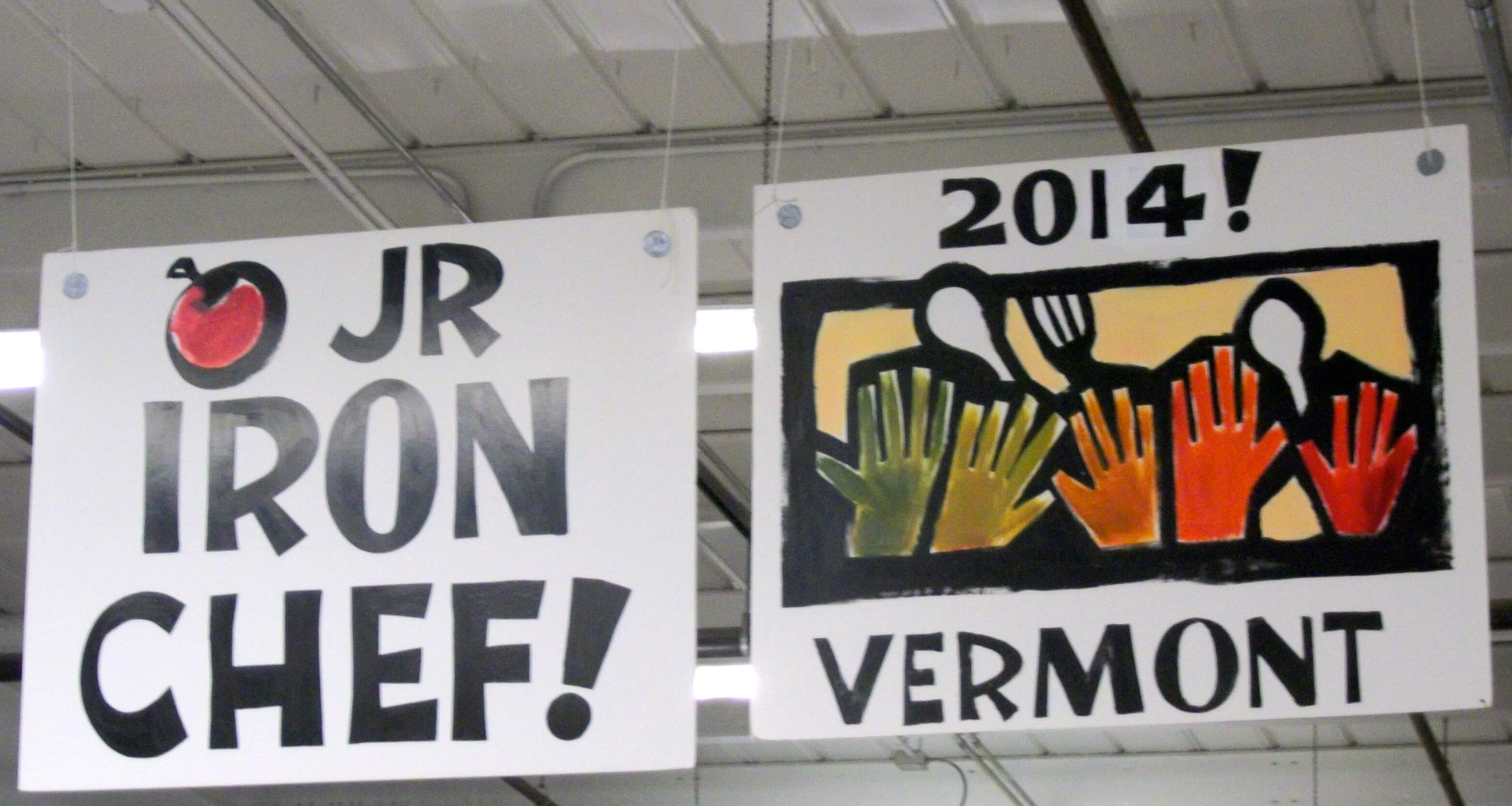Junior Iron Chef & Some Advice to High School Students
Patti Cook, online Culinary Graduate and Current Baking and Pastry student, shares her recent experience as a judge for the 7th annual Vermont Junior Iron Chef competition. As a teacher for the last 25 years, she also shares some advice for high school students considering a food career.
What is Junior Iron Chef?
Junior Iron Chef Vermont is a statewide culinary competition for teams of middle and high school students. The goal is to promote recipes that use local and seasonal ingredients and could be replicated in a school kitchen. Teams of 3 to 5 students create a savory dish that doesn’t contain nuts, meat, poultry or fish. It was inspiring and exciting to be in the middle of hundreds of students cooking up amazing food.
How did you get selected to be a judge?
I contributed to a farm-to-school cookbook project with Vermont FEED (Food Education Every Day). I was involved with the recipe testing. They co-sponsor Junior Iron Chef with the Burlington School Food Project. VT FEED recommended me. It was a fascinating mix of judges. My team of judges included the executive chef of a prestigious resort, the chair of Vermont Slow Food and a former governor of Vermont.
What was the day like?
We spent the first hour learning about the judging process and the evaluation forms. After that, with clipboards in hand, we walked the floor and judged specifically designated teams on execution and teamwork. The focus was on providing feedback about work-station organization and team cohesiveness and communication. The judges reconvened and we discussed our evaluations. Then we tasted completed dishes. Teams made two 8-oz. plated servings for display in the judging room and on the main floor as well as 16 2-oz. servings for judges to sample. We judged the final dishes on taste, creativity and the use of local ingredients.
Did you have a favorite dish?
Although there were a lot of tasty, beautiful and interesting dishes, the team from Winooski Schools made the best black bean burger I’ve ever eaten. It really showed that something simple can be magnificent and special when quality ingredients are used, properly prepared and correctly cooked. It was so delicious that the judges negotiated who got to eat the extra sample. It may well end up on my list of the 10 best things I’ve ever eaten.
You’ve been a college professor and food professional for a long time; do you have any recommendations for students thinking about a career in the food industry?
With the possibility that the final tuition bill for culinary school now can reach or surpass the $50,000-$100,000 mark, it’s clear that students are looking for viable alternatives to acquire the training they need to be successful chefs and food professionals. As I shared with some of the students who asked me for advice at Junior Iron Chef, I think the future of culinary education is online. Escoffier’s Online Culinary and Baking & Pastry programs offer students skills and knowledge with a reasonable price tag. My suggestion is to do the online program and find a job in the field where you’ll get to see what you’re learning put into action. I also suggest that students read as much about food and cooking as they can. Finally, participating in food-related events like the Junior Iron Chef competition offers really valuable experience, the kind of experience that’s part of building a successful career in the food industry.


